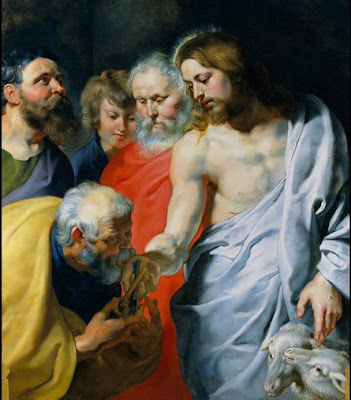SOLEMNITY OF ASCENSION - VII EASTER SUNDAY - Ephesians 1:17-23
In the letter to the Ephesians, Paul prays to God, asking that he may give us “a spirit of wisdom and perception of what is revealed, to bring you to full knowledge of him.” Indeed, we need wisdom and perception. There is so much that we don’t understand! We should pray as Paul did: May the Lord give us wisdom and understanding. Enlightened by Him, we may find the reasons for our hope, which arises from his call. Jesus’ glorification is a promise and guarantee of our glorification. In Jesus´ Ascension, our humanity has been raised and taken the glory of divinity. The day will come when the glory of God will be fully manifested in us. Then, we will be taken up to inherit the rich glories promised to the saints, and we will recognise the greatness of his power. We can see that power at work in Jesus’ resurrection and ascension, which reveals to us his glorification. God raised Jesus from the dead and made him “sit at his right hand, in heaven, far above every Sovereignty, Authority, Power, or Domination, or any other name that can be named not only in this age but also in the age to come. He has put all things under his feet and made him, as the ruler of everything, the head of the Church; which is his body, the fullness of him who fills the whole creation.”
In the ascension, we celebrate Jesus’ headship not only of the Church but also of the universe. He is the fullness of God that fills the whole creation. Time will come when that fullness will be manifest totally in us; then, we will be taken up with Christ to sing with all the angels and saints the glory of God. Meanwhile, we are called to remain here on earth, wherein we must play the role of yeast, salt and light to bring ever closer the Kingdom of God.




